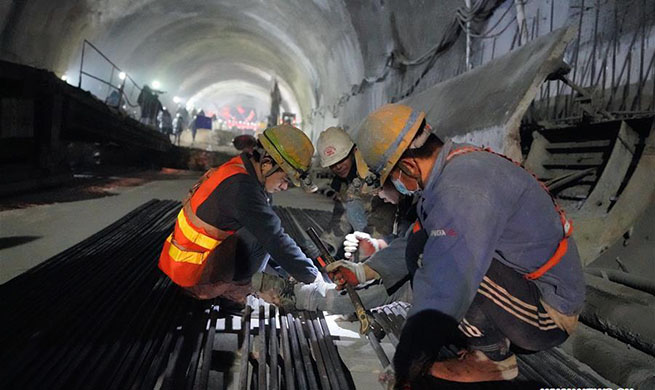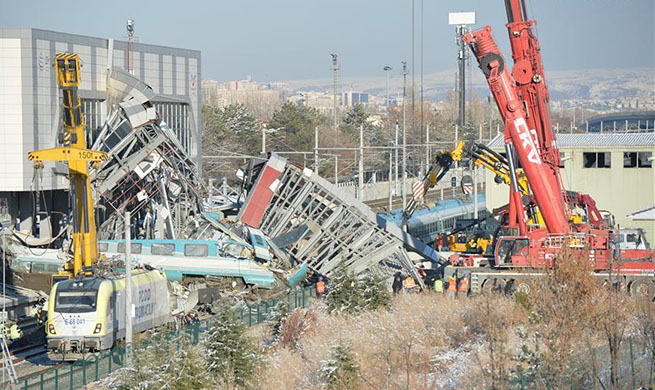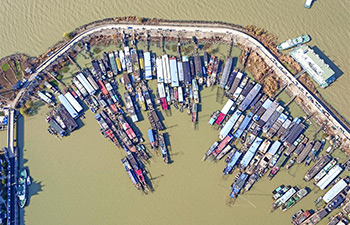CANBERRA, Dec. 14 (Xinhua) -- Australia's peak scientific body has been chosen to take over day-to-day operations at the European Space Agency's (ESA) deep space tracking center in Western Australia.
The station at New Norcia, 130 km northeast of Perth, will be maintained by the Commonwealth Scientific and Industrial Research Organization (CSIRO), it was announced on Friday, with the ESA to continue remotely controlling its spacecraft and satellites via the station.
The ESA control center in Germany uses a 35-meter antenna at the station to track, control and receive data from its spacecraft exploring the solar system.
CSIRO's takeover, which will begin in March 2019, marks the first time that an Australian organization will manage day-to-day operations at the New Norcia station.
"Since 1979, Australia and ESA have had treaties in place to enable European Space Agency ground stations on Australian soil to track spacecraft and interplanetary missions and Australia has unique view of the Southern Hemisphere sky that provides us with a natural advantage for viewing the Universe," Australia's Minister for Industry, Science and Technology Karen Andrews said in a media release on Friday.
"The facility at New Norcia has been in operation since 2003 and now, for the first time, an Australian organization will provide critical maintenance and operational support at the station."
The CSIRO currently manages the Canberra Deep Space Communication Centre on behalf of the National Aeronautics and Space Administration (NASA).
Friday's announcement came only days after the government said that South Australia had been chosen as the home of the Australian Space Agency, which has been tasked with tripling the value of Australia's space industry to 12 billion Australian dollars (8.66 billion U.S. dollars) by 2030.
"The space industry plays an essential role in the lives of all Australians, from providing us with weather forecasts and telecommunications, to inspiring the next generation of students," Andrews said.
Larry Marshall, chief executive of the CSIRO, said the new partnership would see the organization "further support humanity's exploration of our vast solar system."













